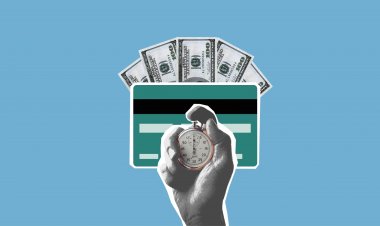Smart Money-Saving Strategies: A Roadmap to Financial Success
Discover the keys to smart money-saving, from setting clear financial goals and creating budgets to automating savings, investing wisely, and planning for a secure retirement. Master your finances and achieve peace of mind.

Saving money wisely is an essential aspect of achieving financial security and realizing your long-term goals. However, in a world filled with temptations and unexpected expenses, it's essential to have a clear strategy in place to ensure your financial well-being. In this blog, we'll explore smart money-saving strategies that can help you build a strong financial foundation and secure your future.
- Set Clear Financial Goals
The first step in saving money smartly is to establish clear financial goals. Whether you're saving for a down payment on a house, building an emergency fund, or planning for retirement, having defined objectives will keep you motivated and focused.
- Create a Budget
A budget is a fundamental tool for managing your finances effectively. Start by tracking your income and expenses to understand where your money is going. Create a budget that allocates a portion of your income to savings and ensures that you're not overspending in any category.
- Automate Savings
Consider setting up automatic transfers from your checking account to a separate savings or investment account. This "pay yourself first" approach ensures that you consistently save money without the temptation to spend it before you save.
- Shop Smart
When shopping, be a savvy consumer. Look for sales, use coupons, and compare prices before making a purchase. Avoid impulsive buying and opt for quality over quantity. Also, consider buying generic brands instead of name brands for everyday items.
- Reduce Unnecessary Expenses
Take a close look at your monthly expenses and identify areas where you can cut back. Cancel unused subscriptions, reduce dining out, and find ways to save on utilities, such as turning off lights and adjusting the thermostat.
- Build an Emergency Fund
An emergency fund is essential for unexpected expenses, like medical bills or car repairs. Aim to save three to six months' worth of living expenses in a separate, easily accessible account.
- Eliminate High-Interest Debt
High-interest debt, such as credit card debt, can erode your finances. Focus on paying off these debts as quickly as possible. The money saved on interest payments can then be redirected towards savings.
- Invest Wisely
Put your money to work by investing. Consider stocks, bonds, mutual funds, or real estate, depending on your risk tolerance and financial goals. Investing allows your money to grow over time, helping you achieve your long-term objectives.
- Keep an Eye on Fees
Whether it's bank fees, investment management fees, or credit card annual fees, paying attention to these costs can save you money in the long run. Choose financial products and services with low fees or negotiate for better terms.
- Plan for Retirement
Saving for retirement is crucial. Contribute to your employer's retirement plan if available, and consider opening an Individual Retirement Account (IRA) to supplement your savings.
- Consider Your Health and Insurance
Regular health check-ups and a healthy lifestyle can prevent costly medical bills. Review your insurance coverage and ensure it meets your needs without unnecessary costs.
- Continuously Educate Yourself
Staying informed about personal finance is vital. Books, websites, and financial courses can help you make informed decisions about your money.

























